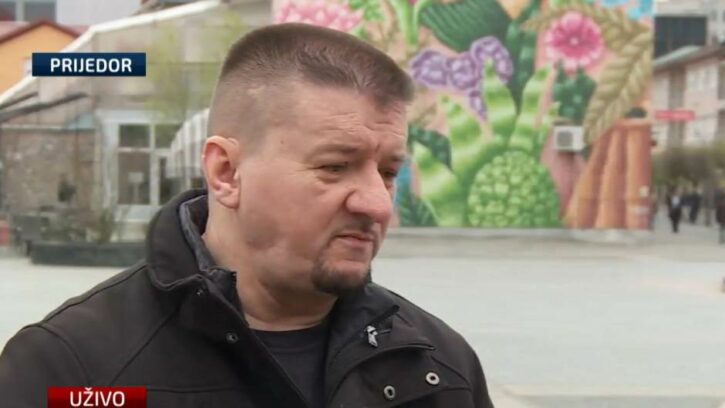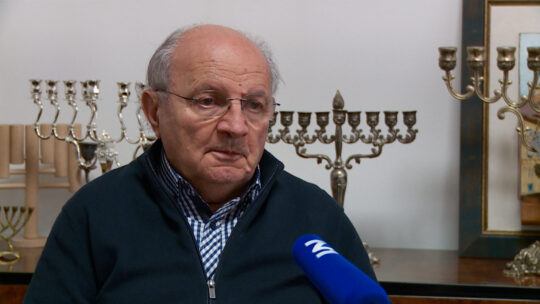
The state institutions did not do much to make more credible the evidence concerning the count of the indictment charging Radovan Karadzic with genocide in the town of Prijedor, said Edin Ramulic, a human rights activist, speaking on the day when Karadzic will hear the final judgement.
According to Ramic, the state authorities were late in opening the mass grave Tomasica, which was supposed to be one of the key pieces of evidence in the trial.
“The mass grave was discovered in 2004, that's a well-known fact, but it was dug and exhumed only in 2013. Why?,” Ramic told N1, suggesting that this question should be addressed to the first man of Bosnia's Missing Persons Institute, Amor Masovic.
Radovan Karadzic, former President of wartime Republika Srpska (RS), now a Serb-dominated semi-autonomous entity within Bosnia, was sentenced on March 24, 2016, to 40 years in prison by the now-closed International Criminal Tribunal for the Former Yugoslavia (ICTY).
On Wednesday, he is to face the final sentence.
Karadzic was convicted of various crimes against humanity, including the ethnic cleansing of Bosniaks and Croats, the siege of Sarajevo, the Srebrenica genocide and taking the UN Protection Force (UNPROFOR) hostages during the 1992-95 Bosnian war.
He was acquitted of genocide charged in other municipalities in Bosnia, including Prijedor, in the first-instance procedure.
Ramic said the judicial institutions, both the international and those in Bosnia, gave their contribution to the fact that crimes in Prijedor are not being denied today.
“Thanks to the International Criminal Tribunal for former Yugoslavia, the Court of Bosnia and Herzegovina and Banja Luka District Prosecutor's Office, today we have a situation in which no one well-intentioned and with common sense denies the existence of concentration camps, mass graves, the existence of mass expulsion, mass killings and even rapes,” stressed Ramic.
He does not expect any major surprises in the final sentence pronouncement on Wednesday.




